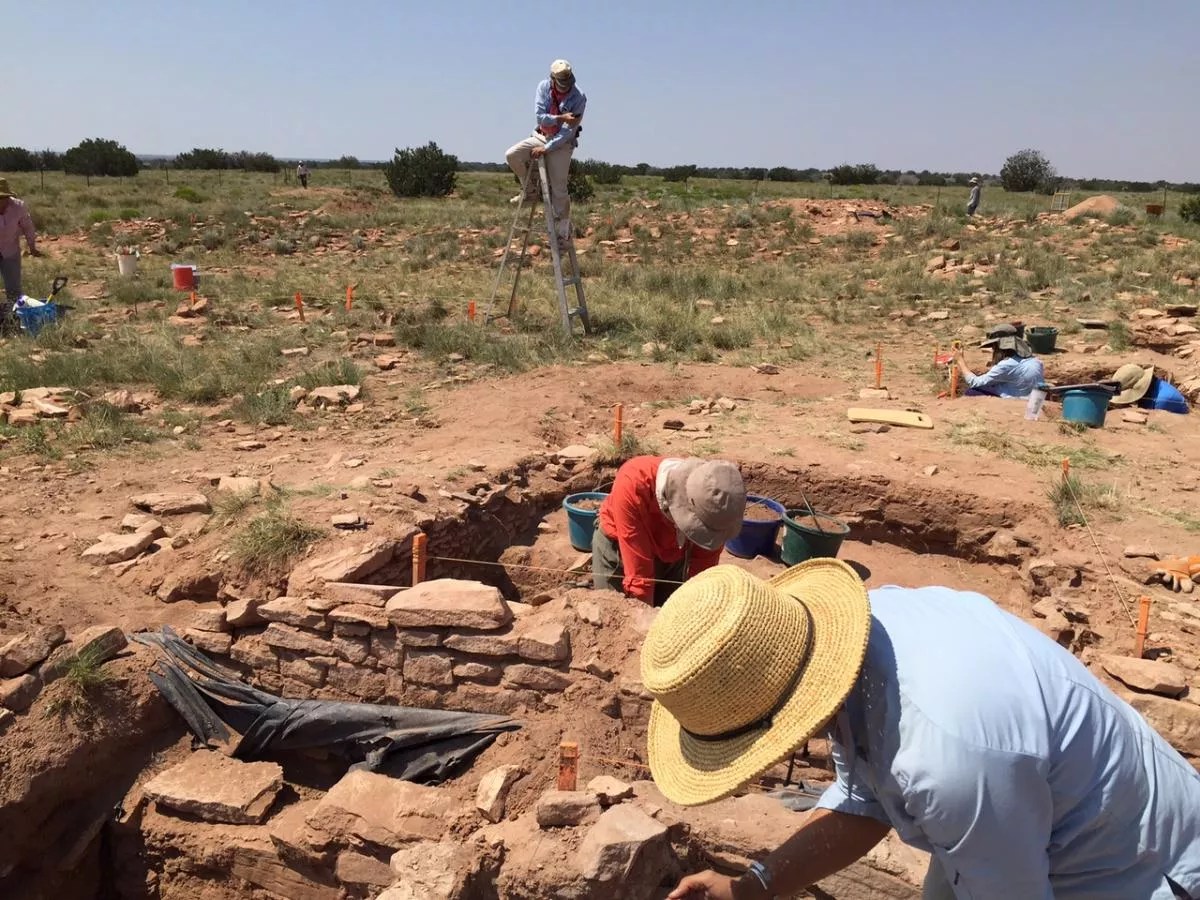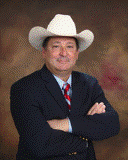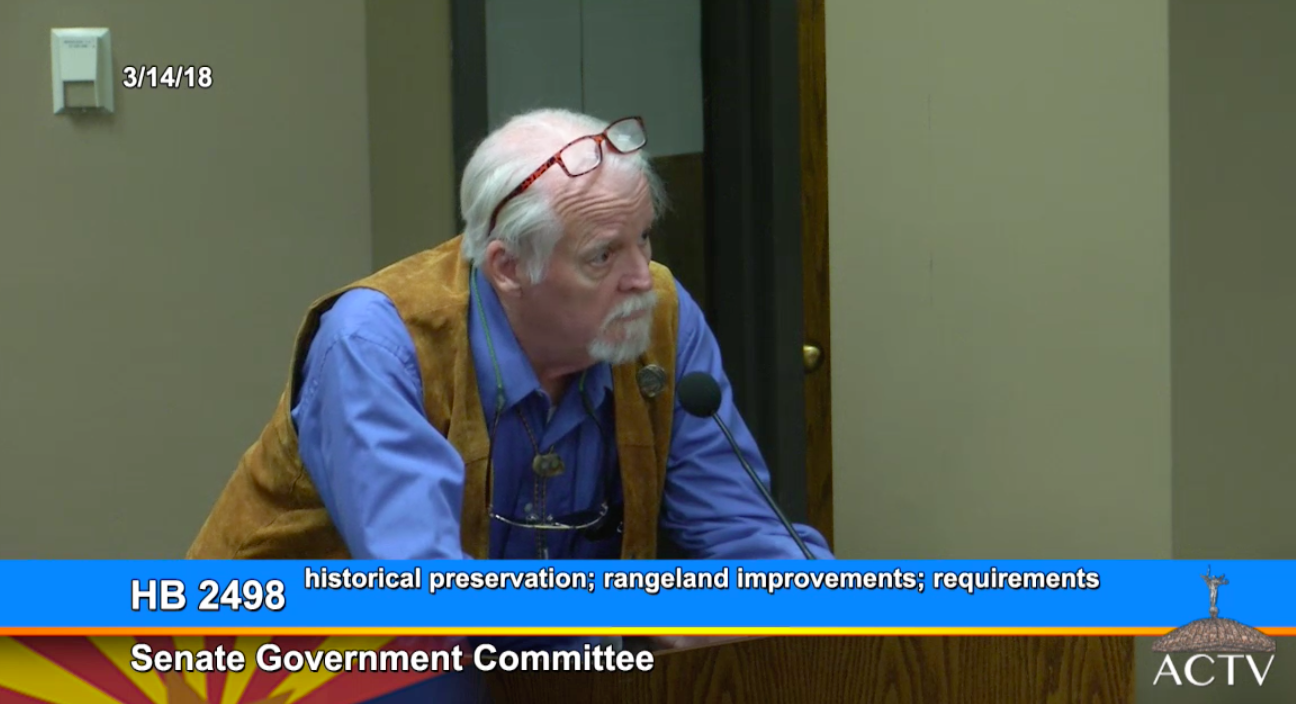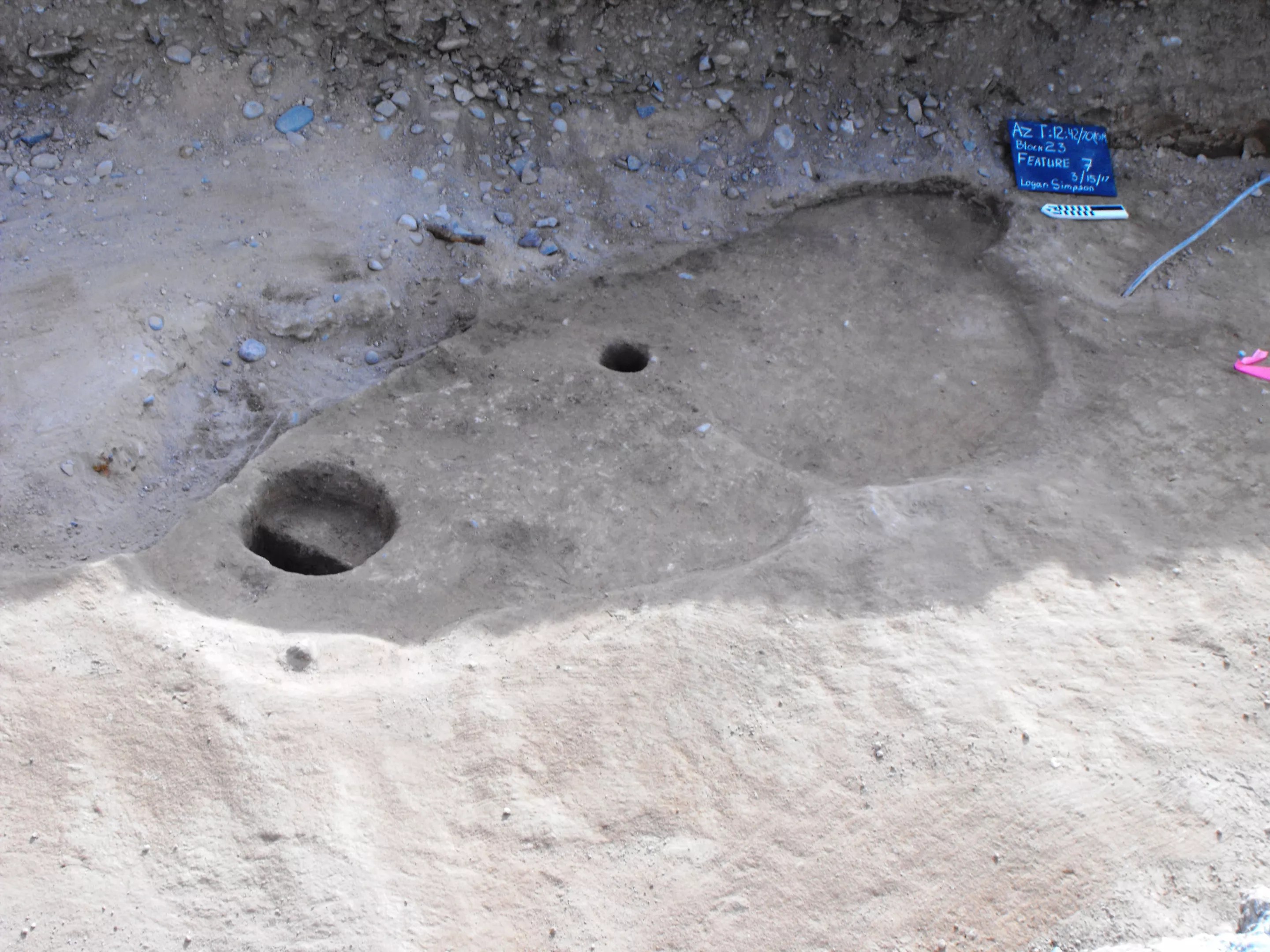
University of Arizona

Audio By Carbonatix
Ranchers are backing a proposed law that would allow people with minimal training to look for historic artifacts on state land – a move that could lead to the destruction of important archaeological sites.
“Arizona’s history is at risk here,” said Matthew Behrend, a former lead archaeologist for the Arizona State Land Department. “I don’t think they realize the implications of what they’re proposing in this bill, or what it would actually do.”
House Bill 2498 was introduced earlier this year by Representative David Cook, a Republican cattle rancher from Globe.
“What’s going on, in my opinion, is government corruption at its best,” Cook told Phoenix New Times. “Government agencies are being held hostage to mandate giving work to these archaeologists. This mechanism that’s going on inside government is doing nothing but driving funding towards the individuals that do this type of work.”
This year, make your gift count –
Invest in local news that matters.
Our work is funded by readers like you who make voluntary gifts because they value our work and want to see it continue. Make a contribution today to help us reach our $30,000 goal!
In Arizona, it’s common for ranchers to graze their livestock on public land in addition to their own private property. If they want to drill a well, build a fence, or make any other changes on state land, they need to get permission from the State Land Department first, which means going through a process that the Arizona Cattlemen’s Association says is overly burdensome, expensive, and time-consuming.
Typically, as part of that process, ranchers will have to pay for an archaeological survey. Some exceptions can be made – for instance, if a rancher is trying to eradicate an invasive plant species by spraying chemicals from a small plane, the survey wouldn’t be necessary.
But with anything that’s considered “ground-disturbing activity,” such as using tractors and chains to rip out creosote bushes, archaeologists must first make sure the site contains no priceless artifacts or tribal burial sites.
If they discover any historical sites or objects more than 50 years old, state officials are notified, as are Native American tribes.

Rep. David Cook
azleg.gov
Cook’s bill would change who gets to perform those evaluations, allowing the state’s historic preservation officer to select “an individual who has completed a national cultural resources training program to perform the survey report.”
If you’re confused about exactly what that means, you’re not alone.
“This does not define the type of national training program or similar course of study,” the Arizona Archaeological Council wrote in a scathing letter to members of the Legislature. “Language is further unclear as surveys are performed, reports are written and prepared. ‘Perform the survey report’ does not make sense.”
Cook told New Times that his intention is to allow so-called “para-archaeologists” who have taken a 40-hour class to perform a survey and determine whether there are any historic or archaeological sites present. A professional archaeologist in the state preservation office would later review the written reports, but wouldn’t necessarily visit the site in person.
The Pascua Yaqui Tribe, Tohono O’odham Nation, Gila River Indian Community, Salt River Pima-Maricopa Indian Community, and Cocopah Indian Tribe have opposed his bill out of concern that people who don’t have extensive training in archaeology won’t know what to look for.

Peter Steere, a tribal
Screenshot/Arizona Capitol TV
“We’re very, very concerned about the idea of having non-professionals out there,” Peter Steere, a tribal historic preservation officer for the Tohono O’odham Nation, told the Senate Natural Resources Committee. “It’s not something where you can take a week’s training or a day’s training and go out and do it.”
Shane Anton, a cultural preservation officer for the Salt River Pima-Maricopa Indian Community, called the proposal “insulting to me and my ancestors.”
In a March committee hearing, Senator Jamescita Peshlakai, a Democrat from the Navajo Nation, asked Cook if he’d consider amending his bill to take out the language that allows para-archaeologists to perform surveys. Cook declined.
“If we have to go to the doctor for urgent care, do we see a doctor all the time?” he replied. “We don’t require a surgeon to see us for a common cold, or for a prescription. And that’s what this is.”
He added, “If there’s a site or whatever, obviously there are going to be archaeologists.”
Asked by New Times about what qualifications the para-archaeologists would have, Cook said that they’d likely be U.S. Forest Service employees who have completed 40 hours of classroom training and 40 hours of fieldwork in order to get certified as paraprofessionals.

Phoenix archaeologists say this ancient Hohokam pit home could be 2,000 years old.
Mark Hackbarth of Logan Simpson via City of Phoenix
“They’re going to be in the field already,” he said. “So why can’t we just have them trained and certified to do the work while they’re in the field doing their job, instead of having another bureaucrat come out and do another layer of bureaucracy?”
Cook also pointed out that Arizona is already using para-archaeologists on some projects. But according to Kathryn Leonard, the state’s historic preservation officer, para-archaeologists are currently allowed to perform surveys under the supervision of a professional archaeologist only.
Those para-archaeologists have been certified through the U.S. Department of Agriculture’s Natural Resources Conservation Service. The NRCS’ cultural resources training includes four hours of online study, eight hours of classroom training, and eight to 16 hours of fieldwork. Anyone can go through the training – even ranchers themselves.
Currently, the only people who can survey a new site and evaluate its significance are archaeological consultants who have been granted a permit under the Arizona Antiquities Act.
Permitted consultants typically have a bachelor’s degree in archaeology and at least two years of field experience at minimum, said Dave Hart, the president of the Arizona Archaeological Council. Many also have advanced degrees.
“To give you an example of why we’re concerned, in the ranchers’ logic, their idea is that they just want to do a small project, like install a water line,” he said. “They’ll get this person with very limited training to say, ‘Oh, I see some pottery over here, let’s just move it 100 feet, and then we’ll move forward.’ That’s great that they’re trying to avoid it, but you really need a trained professional to say, ‘What’s really here? And if you’re going to move it 100 feet, what are you going to move it into?’ You could be moving it through a prehistoric cemetery and not know it.”
Professional archaeologists admit that they’re also concerned about how the proposed change would affect their ability to make a living.
“It would probably put people like myself out of business, or out of a job,” said Behrend, the former Land Department archaeologist, who now works for North Wind Resources Consulting. But, he added, it’s not a lucrative career path, or a field that anyone goes into for the money.
“The archaeology community, we’re not elitists, we’re not a bunch of professors or anything like that,” Hart said. “We’re just normal people that have a passion for protecting cultural resources, and that’s why we got into this career. We did it because we’re passionate about history. Once you destroy an archaeological site, it’s gone forever, and so is all the information it contains.”
The bill has been approved by the Arizona House of Representatives, and is waiting for a vote from the Arizona Senate.
Correction: This article has been updated to more accurately reflect what happens after an archaeological site is discovered and the role of para-archaeologists.